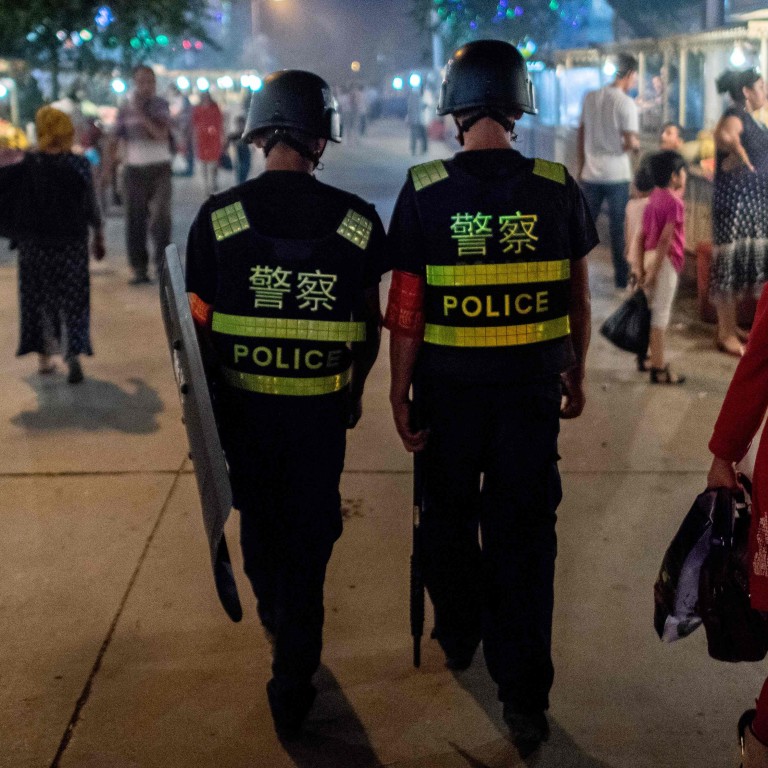
Malaysian minister Mujahid Yusof Rawa under fire for calling Xinjiang Uygur camp a ‘training institution’ on China visit
- Chinese authorities have placed an estimated 1 million mostly Muslim ethnic minorities in internment camps
- Beijing describes them as ‘vocational training centres’ vital in the fight against separatist sentiment and religious extremism
Chinese authorities have placed an estimated 1 million mostly Muslim ethnic minorities in internment camps that Beijing claims are needed to steer people away from extremism.
On the seven-day trip to China last week, a picture was posted on Mujahid Yusof Rawa’s Facebook page of people sitting at desks in a classroom.
Amnesty International said it was “deeply disappointed” at Mujahid’s remarks.
Uygurs and other minorities held in the camps “are subjected to forced political indoctrination, renunciation of their faith, mistreatment, and, in some cases, torture,” said Shamini Darshni Kaliemuthu, Amnesty International Malaysia’s executive director. “They are hardly the ‘vocational and training institution’ that the minister seems to have visited.”
A US official has previously said the sites are “concentration camps”, a description rejected by Beijing.
China describes them as “vocational training centres” vital in the fight against separatist sentiment and religious extremism.
P. Ramasamy, a politician from the ruling coalition in Muslim-majority Malaysia, said he was “disappointed with Mujahid for toeing the Chinese official line”.
“There is nothing wrong in seeking investments from China or any other countries. But then there is a line to be drawn when it comes to human rights,” he said in a commentary on news website Malaysiakini.
Indonesia ‘doubts Western reports of Xinjiang internment camps’
Mujahid defended his actions, saying in a statement his visit “involved other aspects”.
These included “building a global Malaysia-China cooperation network to exchange views and information on issues such as peace, religion,” he said.

.png?itok=arIb17P0)